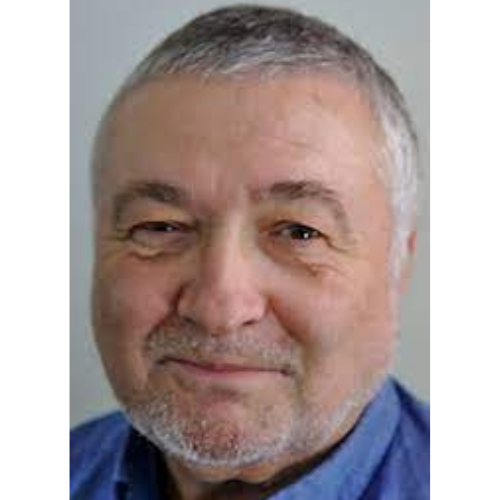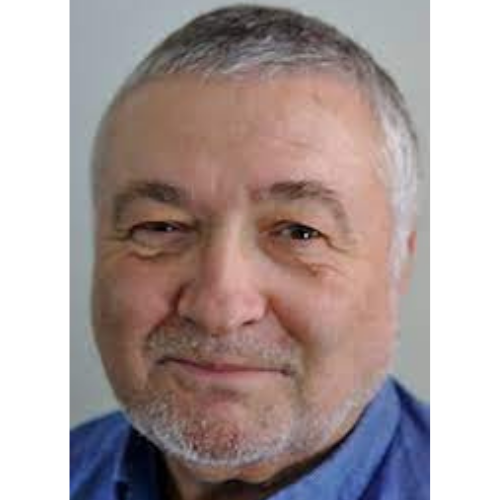Speakers presentations

Hermann Ney
Hermann Ney is a professor of computer science at RWTH Aachen University, Germany.
His main research interests lie in the area of statistical classification, machine learning and neural networks with specific applications to speech recognition, handwriting recognition, machine translation and other tasks in natural language processing.
He and his team participated in a large number of large-scale joint projects like the German project VERBMOBIL, the European projects TC-STAR, QUAERO, TRANSLECTURES, EU-BRIDGE and US-American projects GALE, BOLT, BABEL. His work has resulted in more than 700 conference and journal papers with an h index of 100+ and 60000+ citations (based on Google scholar). More than 50 of his former PhD students work for IT companies on speech and language technoloy.
The results of his research contributed to various operational research prototypes and commercial systems. In 1993 Philips Dictation Systems Vienna introduced a product for large-vocabulary continuous-speech recognition. In 1997 Philips Dialogue Systems Aachen introduced a spoken dialogue system for traintable information via the telephone. In VERBMOBIL, his team introduced the phrase-based approach to data-driven machine translation, which in 2008 was used by his former PhD students at Google as starting point for the service Google Translate. In TC-STAR, his team built the first research prototype system for spoken language translation of real-life domains.
Awards:
2005 Technical Achievement Award of the IEEE Signal Processing Society;
2013 Award of Honour of the International Association for Machine Translation;
2019 IEEE James L. Flanagan Speech and Audio Processing Award;
2021 ISCA Medal for Scientific Achievements.

Andrew G. Barto
Andrew Barto is Professor Emeritus of Computer Science, University of Massachusetts Amherst, having retired in 2012. He served as Chair of the UMass Department of Computer Science from 2007 to 2011. He received a B.S. with distinction in mathematics from the University of Michigan in 1970, and a Ph.D. in Computer Science in 1975, also from the University of Michigan. He joined the Computer Science Department of the University of Massachusetts Amherst in 1977 as a Postdoctoral Research Associate, became an Associate Professor in 1982, and a Full Professor in 1991.
Before retiring he co-directed the Autonomous Learning Laboratory at UMass Amherst, which produced many notable machine learning researchers. He is currently an Associate Member of the Neuroscience and Behavior Program of the University of Massachusetts. He serves as an associate editor of Neural Computation, as a member of the Advisory Board of the Journal of Machine Learning Research, and as a member of the editorial board of Adaptive Behavior.
Professor Barto is a Fellow of the American Association for the Advancement of Science, a Fellow and Life Member of the IEEE. He received the 2004 IEEE Neural Network Society Pioneer Award for contributions to the field of reinforcement learning, the IJCAI-17 Award for Research Excellence for groundbreaking and impactful research in both the theory and application of reinforcement learning, and a University of Massachusetts Neurosciences Lifetime Achievement Award in 20019. He has published over one hundred papers or chapters in journals, books, and conference and workshop proceedings. He is co-author with Richard Sutton of the book "Reinforcement Learning: An Introduction," MIT Press, 1998, which has received over 25,000 citations. A much expanded second edition was published in 2018.

Elisa Ricci
Elisa Ricci is an Associate Professor in the Department of Information Engineering and Computer Science (DISI) at the University of Trento and the head of the Deep Visual Learning research group at Fondazione Bruno Kessler (FBK). She is the scientific manager of the Joint Laboratory on Vision and Learning between FBK and DISI. Her research interests are directed to the development of deep learning algorithms and, in particular, of transfer learning and domain adaptation methods, with applications in the field of computer vision, multimedia analysis and robot perception.
Elisa received her MSc (2004) and PhD degree (2008) in Electrical Engineering from the University of Perugia. Previously, she was an Assistant Professor at the University of Perugia (2011-2017) and a researcher at the Idiap Research Institute (2009) and FBK (2010). She has been a visiting researcher at the Swiss Federal Institute of Technology and the University of Bristol.
Elisa has co-authored more than 100 scientific publications and she regularly publishes in top-tier journals and conferences in computer vision and multimedia (CVPR/ICCV/NeurIPS/ACM MM, IEEE TPAMI, IJCV, IEEE TMM, IEEE TIP). Her publications have been cited over 5,500 times and her Google Scholar H-index is 39. She has received numerous awards for her scientific activity (Best paper award ACM MM 2015, INTEL Best Paper ICPR 2016, etc). She is a member of the editorial board of the journals IEEE Transactions on Multimedia, ACM Trans on Multimedia Computing Communications and Applications and Multimedia Systems Journal (MMSJ). She is the Program Chair of ACM MM 2020, the Diversity Chair of ACM MM 2022, Track Chair of ICPR 2020, Special Session Chair at ICME 2022. She was/is Area Chair at WACV 2021, AISTATS 2021, BMVC 2018-2020, ICMR 2019, Senior Program Committee member of IJCAI 2019, ACM Multimedia 2016-2019, Area Chair at ECCV 2016, ICCV 2017 and Associate Editor at ICRA 2018, 2019, 2021.
She is/was the Principal Investigator and/or participated to several national and international projects. Elisa Ricci is also involved in several industrial projects and collaborations with companies, both at national and international level. Currently, she is the principal investigator of the project BONSAI – Analyzing Human Behaviors with Online and Structured Adaptation funded by Huawei Technologies.

Danilo J. Rezende
Danilo Jimenez Rezende is a Senior Staff Research Scientist and Team Lead at Google DeepMind, where he works at the intersection of probability, statistics, machine learning and decision making.
He holds a joint BA in Physics and MSc in Theoretical Physics from Ecole Polytechnique (Palaiseau – France) and from the Institute of Theoretical Physics (SP – Brazil) and a Ph.D. in Computational Neuroscience at Ecole Polytechnique Federale de Lausanne, EPFL (Lausanne – Switzerland).
His research focuses on scalable inference methods, generative models of complex data (such as images, video, 3D perception, field theories from physics), applied probability and unsupervised learning. I am also very interested and invested in applying ML to fundamental physics problems (such as molecular dynamics and lattice-QCD).

Marco Gori
Marco Gori received the Ph.D. degree in 1990 from Università di Bologna, Italy, working partly at the School of Computer Science (McGill University, Montreal). In 1992, he became an Associate Professor of Computer Science at Università di Firenze and, in November 1995, he is currently leading the Siena Artificial Intelligence Lab (SAILAB). Professor Gori is primarily interested in machine learning with applications to pattern recognition, Web mining, game playing, and bioinformatics. He has recently published the monograph “Machine Learning: A constraint-based approach,” (MK, 560 pp., 2018), which contains a unified view of his approach. His pioneering role in neural networks has been emerging especially from the recent interest in Graph Neural Networks, that he contributed to introduce in the seminal paper “Graph Neural Networks,” IEEE-TNN, 2009.
Professor Gori has been the chair of the Italian Chapter of the IEEE Computation Intelligence Society and the President of the Italian Association for Artificial Intelligence. He is a Fellow of IEEE, a Fellow of EurAI, and a Fellow of IAPR. He was one the first people involved in European project on Artificial Intelligence CLAIRE, and he is currently a Fellow of Machine Learning association ELLIS. He is in the scientific committee of ICAR-CNR and is the President of the Scientific Committee of FBK-ICT. Professor Gori is currently holding an international 3IA Chair at the Université Cote d’Azur.





